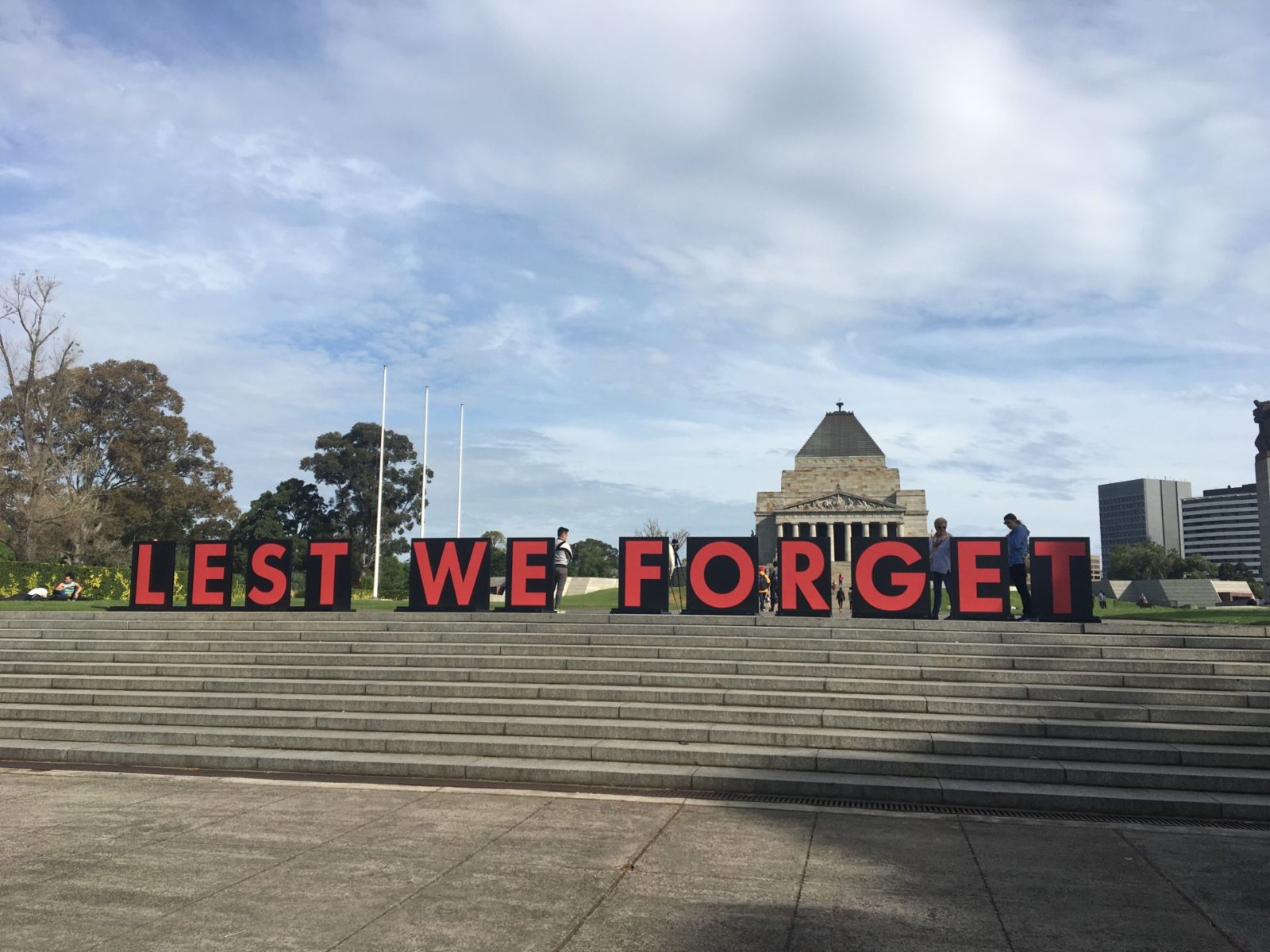When Kyriakos (Ken) Tsirigotis was a kid, he – like most kids his age – knew of Legacy. He knew they sold badges but not really why. It was only after serving for more than 20 years in the Australian Defence Force as an Australian Army Paratrooper that the war veteran began to fathom the real significance of the service that Melbourne Legacy offers.
He speaks of the organisation’s work with gusto, and says it is close to his heart because he knows first-hand that it is as necessary for the families of veterans today as it had been when it was first created 95 years ago post-WWI.
By taking care of the families who have been affected by a loved ones service the not-for-profit organisation ensures the well-being of widows, youth, disabled beneficiaries and the family unit.
“If the support network is strong, then those who serve in countries like Afghanistan have a better chance of transitioning to their life back home,” Mr Tsirigotis told Neos Kosmos, adding that everyone is affected by their service in different ways, with Legacy offering individual support that caters to the need of every person on a case by case basis with the emphasis being the family rather than the veteran, but where there is a veteran there is a family and where there is a family there is a veteran.
“Not every serviceman comes back with PTSD, I know I didn’t and we should not be defined by PTSD, each case is different,” Mr Tsirigotis said. “We care for the dependants of those who have been impacted by the experience of their loved ones.”
READ MORE: Anzac Day: Lemnos’ Role Remembered in Greece and Australia

Photo Kyriakos Ken Tsirigotis Chief Operating Officer and Justin Powell Veteran Liaison Officer both are veterans that work for Melbourne Legacy. Photo: Supplied

Ken Tsirigotis at work at Melbourne's Legacy offices, a drawing created by his son reminds him of the importance of family. Photo: Mary Sinanidis

A message outside Melbourne's Shrine of Remembrance ahead of Legacy Day (11 November). Photo: Mary Sinanidis

Greeks and Legacy
While Legacy is known as an organisation that delivers programmes to families of servicemen and women, what most of the Greek community doesn’t know is that many Greeks Australians have been supported, and continue to be supported, by Melbourne Legacy.
Xanthoula Wrigley, aged 94, is one such Greek who still draws support from Legacy. “I first got assistance from the group after my husband died,” Ms Wrigley told Neos Kosmos, remembering her husband, sergeant Herbert ‘Slim’ Wrigley, one of the 17,000 Australians who served in Greece during WWII and met Xanthoula while her family sheltered him after he escaped from a German prisoner of war camp.
“After my husband died, Legacy helped me attend to paperwork,” Ms Wrigley said. “My children were grown up so I didn’t need much more than that.”
Later in life she joined the War Widows Club and found meaningful friendships that helped her get through tough times. “More recently, around three to four years ago, I got to know a gentleman who was a member of the Croydon Club where I live near Ringwood. He said he could be my ‘Legatee’ and I became a member and joined in their outings.”
Most of Ms Wrigley’s family and husband’s family have died. “My children are helpful but I know they have their own commitments,” Ms Wrigley said. “Through Legacy, I have created my own social circle. It’s great meeting and talking and having a bit of fun.”
READ MORE: Xanthoula and Slim – an Anzac love story
Like Mr Tsirigotis, Ms Wrigley has also found it rewarding to give back to Legacy. “I have been approached to give talks and tell my story about the Occupation and what people went through. I represent both the Greek and Australian stories,” Ms Wrigley said, adding that one of the proudest moments of her life came when her grandson accepted a medal from Greece recognising the work of her father, school teacher Ioannis Papadopoulos, who sheltered allied soldiers during WWII. “It took 70 years before I saw signs of the Greek government recognising my father’s work.”
Ms Wrigley is glad she lived to see the recognition. As for Legacy, she’s always glad to give back to the group that supported her and other Greek Australians like her.
Mr Tsirigotis wants to draw attention to the Greek component of Legacy. “Amongst the beneficiaries that Melbourne Legacy supports there are also Greek Australians that have been impacted by the service of a family member in the ADF, we are now seeing more complex cases and the impact on family members is huge, for every serving Australian, there’s more than one life at stake,” he says, adding that Legacy currently supports more than 4,700 people with services which include relief from financial hardship, advice and referrals to support services such as counselling, assistance with children’s education and development, encouraging like-minded friendships, and advocating for entitlements and services.
“We invest heavily in training and participate in research to ensure we have the knowledge and expertise to deliver life-changing outcomes,” he said.
He remembers the days when he sold badges, thinking that Legacy Day was just a great occasion to sell badges instead of sitting on the barracks. A few years later, he knows that the delivery of Legacy’s important programmes are only in existence due to the generous donations of caring Australians and help by volunteers.
“These amazing individuals provide the tools and support needed to build a brighter future,” he says, and encourages more to hop on board through fundraising, donating, leaving a bequest or just volunteering. Or at least buy a badge on 15 November this year.
You can find out more about Legacy by visiting https://www.melbournelegacy.com.au/, or find out how you can help by visiting https://melbournelegacy.force.com/donation/s/









